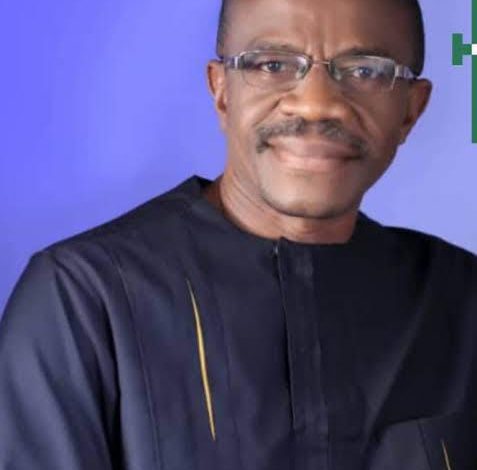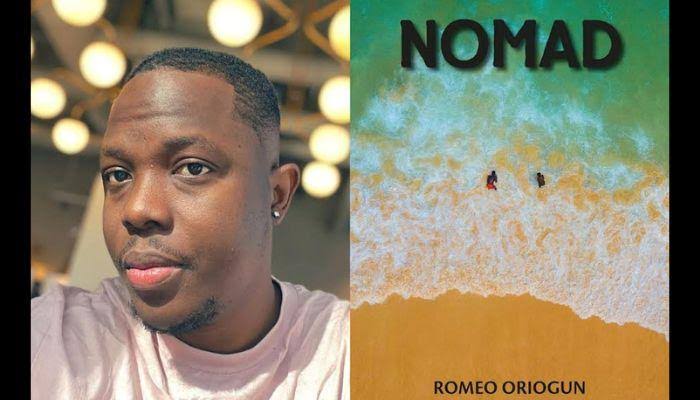Soyinka@89: Online project, ‘Etike Revolution’ remake launched as ‘The Road’ hit the stage

By Anote Ajeluorou
THE yearly ritual of celebrating Nobel laureate Prof. Wole Soyinka’s birthday is usually a loaded one. But perhaps no year has it been loaded with so many activities packed into one day. Although July 13 is his birthday, this year’s celebration was extended to July 16, 2023 when he launched his Selected Poems (1965 – 2022): A Retrospective, featuring his old and new poems. The book launch was held at the corporate office of ProvidusBank Ltd, perhaps the only bank in Nigeria that considers relaxation as part of maintaining balance between work and some form of pleasure for optimum performance. ProvidusBank’s rooftop lounge is a class its own, and a showpiece of delicate interior decor with its transparent roof that opens to the heavens and allows the sun stream in and bathe the guests.
Shortly after the launch of the book, guests moved to Lagos cultural hotspot, Freedom Park on Broad Street to round off the celebration of Africa’s preeminent literary icon. First on the bill was singer, performer and folklorist Jimi Solanke’s untitled exhibition at the gallery. Solanke explained that the works emanated from his storytelling endeavour with children at NTA, how he saw opportunity to teach the young ones practical, hands-on things they could do on their hands own, using plain paper and markers. The result of Solanke’s untutored efforts at visual expression are some intriguing art pieces that show no sign of coming an amateur artist. What leaps out of the exhibits are direct baffling figures as though taken straight out of DO Fagunwa’s Forest of a Thousand Daemons, figures contorted in various forms but appealing in their weird way all the same. Guests thronged the gallery to admire Solanke’s visual wonders.
Solanke’s exhibition viewing dovetailed into the performance of one of Soyinka’s rarely performed plays, The Road at the FoodCourt of Freedom Park, where Segun Adefila and his Crown Troupe of Africa reinterpreted a continent’s unending travail in the hands of her perennially bad leadership. Adefila explained that he felt challenged to stage The Road after seeing Israelis perform it on stage in Hebrew in Israel, noting that if foreigners could do it why not him for whom the play is home to. Daunting as it is, Adefila said The Road is a stage marvel and called on other thespians to give it a shot.

Prof. Wole Soyinka
The evening also included putting on context the 14-year-old Wole Soyinka International Cultural Exchange (WSICE) project, an OpenDoorSeries advocacy project that dwelt on the theme ‘Nation Building, Good Governance and National Development.’ Dr. Tunde Awosanmi took the audience through the importance of the project and why it is children-centred in grooming youths on various themes around justice, freedom, leadership, nation building and national development, and anchoring its yearly thematic focus on concepts that are core to Soyinka’s literary and public intellectual careers.
Also, the public unveiling of the ‘Wole Soyinka Online Project’ was launched. It’s a platform designed to (re)introduce and celebrate the life and works of Soyinka and to activate a network of scholars of various levels across the world and attract the general public to reading and appreciation of the arts in general. The project brings together over 50 leading writers from over 35 countries across the globe. It is a project of the Commonwealth Institute of Advanced and Professional Studies (CIAPS) and the Cambridge African Roundtable. CIAPS Institute Director, Prof. Anthony Killa launched the project and took his audience through the online portal that literally warehouses everything ever written about and on Soyinka, with the promise of more being added. Killa called on the public to also contribute by sending Soyinka-centred materials to the platform.
According to Killa, “What we’ve done is to build this platform to attract people to the arts and reading generally, and as a repository of everything Wole Soyinka. The idea being that when you go to the website, you discover the man. In the platform, we’ve tried to introduce every facet of the man. It’s an ongoing project and we ask people to contribute to their own Wole Soyinka story and views. So we’ve gathered a lot of materials and we continue to gather more that covers his plays, essays, poems, films, his memoirs, translations he’s done, his music, etc. Overall, the idea here is to create a forum that gathers together scholars, teachers, students and people who are interested in Wole Soyinka project. We hope to continue to grow this.
“What we are saying is that people become part of this and share it. There’s a part in the platform called ‘My Wole Soyinka Story’, where people can share their memory or impact of Soyinka on their lives. To do this, you don’t have to be an artist or writer, but just someone who has seen or listened to Wole Soyinka before. So there’s a space for everybody in the Wole Soyinka Online Project.”
There was also the presentation of the 40th anniversary remake of the evergreen socio-political song, ETIKE REVOLUTION, composed, arranged by Soyinka and first published in 1983 in the heat of the political turmoil of the early 1980s in the country. Remastered and produced by Concrete Communications Studios, the song has been re-interpreted by an array of veteran and young artists of varied political and ideological persuasions, including the veteran actors Taiwo Ajai-lycett, Jimi Solanke, Ben Tomoloju, Yemi Shodimu, Joke Silva, Edmond Enaibe, Yemi Solade, Tunji Sotiminrin and Francis Onwochei, Ropo Ewenla. Others include the songstresses and musicians such as Yinka Davies, Debbie Ohiri, Isioma Williams, Edaoto Agbeniyi; and Segun Adefila, Jojo Bodybeats, etc. Only a few of the artistes were missing on the night: Mr. Tomoloju, Silva, Davies, etc.
CEO of Concrete Communications Studios, Sir Semoore Badejo, spoke about the relevance and continuing currency of the song some 40 years later, as a sign that Nigeria has merely revolved around in one spot without making any meaningful progress. He also spoke about the need to celebrate the living rather than the general futility of such efforts when they were gone, noting that Orlando Julius was the first on such hnours’ list.
“I believe that it’s important to celebrate these our icons while they are alive than when they are gone,” Badejo said. “So, we try as much as possible to honour them, appreciate them for their contributions to arts, to music, not only in Nigeria, but globally. We started with Orlando Julius; we did his song, assembled a couple of friends to celebrate his 78th birthday, and he was very happy. Even in his down moment, he appreciated what we did. And then we did it for Tunji Oyelana. What moved me most was the way he reacted. It was supposed to be a surprise; I spoke to him the morning after and he was in tears. And I remember what he said: ‘I thought Nigeria has forgotten me!’ I felt so moved and resolved that we were going to be celebrating our unsung heroes, people who have taken us to where we are today. These people took arts as a passion, not to make money, and they worked all through their lives. So I believe they must be celebrated.”
Badejo said it was while mulling how to celebrate Democracy Day that Soyinka’s evergreen song came to mind, “a song released 40 years ago: Etike Wetin?’ And when I listened to that song, it was as if it was composed two weeks ago. So the relevance on its own became the attraction for a retool of that work. If in Nigeria then they were stealing one kobo and one million, it has gone to the class of billions and trillions. And I remember when Soyinka came to us, the first thing he asked was, ‘what has changed?’ What has changed? We want to see some positivity of that song. And the positive side of it is that we must continue to engage our government; we will continue to bring out the ills of the society. We will not stop talking, stop engaging our leaders. When we see things that are going wrong, we must voice out. But at the same time, if Nigeria pushes me like this, I will push Nigeria the other way! I’m not going anywhere. For me that is the positivity: that means we will continue to speak truth to power. We will not stop. The climate is different now; it was in 1983 that the song was made. That is the essence of this project, and it’s so amazing that we had 37 people coming together to put this together.”



